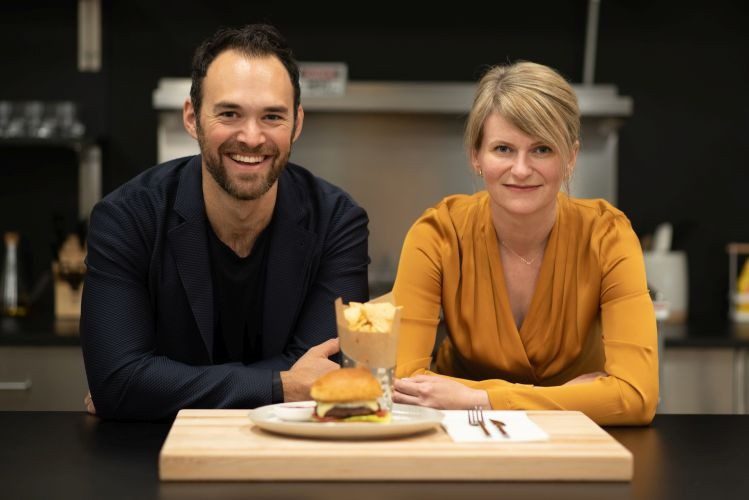Director of Engineering, Next Gen Ag, David Ziskind of Black and Veatch answers this hot question: if plant-based products are so popular, why aren’t there more of them? On this episode of the Plant-based Business Hour with Elysabeth Alfano, they talk about the difficulty of scaling.
Specifically, they discuss,
- What are the biggest challenges in scaling?
- Are strategic partnerships better than building smaller independent plants?
- What are the problems with co-manufacturing and with running independent plants?
- What are David’s predictions for when and how the sector scales and will plant-based companies be able to do it or will they be forced to sell?
Here is a short clip and transcript from their conversation. Podcast here.
Elysabeth: Are you seeing, for lack of a better expression, I’ll say Willy Wonka-type demands? Like, okay sure, the co-manufacturing of my parents used to look like this, but we now want this new plant that looks like this. Are you seeing these new startups have new demands that you have never seen before because that has never been created before through precision fermentation or cultivated meat? What kinds of new demands or requests are you seeing in the creation of a manufacturing plant?
David Ziskind: We’ve really moved beyond- certainly there are still extruded products, but we’ve sort of moved beyond that particularly where you’re seeing the different types of fermentation. You’re seeing precision fermentation. You’re really seeing these different processes and to complicate it, a lot of what’s being done right now is being done in the lab. So how do we get to this to make this product, right? Well, now how do we scale it?

So that process of scaling is not just to multiply by x and do the same thing. A lot of the time we’re looking at if there is a different part of the process or the way we execute the process that makes it more cost-effective, easier, faster, or any of those items. So, I agree. Part of the co-manufacturing challenge is what does that scale-up really look like? In the case of products that are still in the lab, what’s different? Because you might invest in a piece of machinery or go one route and find out it doesn’t work at scale, so what’s next? What do you do next?
Elysabeth: Wouldn’t that just be a question of experience? Let me rephrase that. I’m surprised to hear that when one company goes to scale, they might not have all the answers for how to scale. Have I understood that correctly?
David Ziskind: I think that’s a fair statement. So, I think when we’re talking about scaling these technologies you do them at different volumes, right? Like in the case of fermentation. But there’s no guarantee. As you scale, you’re having to make these little tweaks and these little changes.

So, you’re making these jumps and I would say, I don’t like using the word “always”, but I’d say there’s always a bit of uncertainty in there and it’s a question of how big is that uncertainty. What does it look like? What’s your scaling jump? What are you jumping from in terms of capacity, you have to have that right capacity difference to make sure you’re getting your scaled-up experiments and you’re getting to the point that really makes sense.
Elysabeth: So, extrapolating from what you’re saying, scaling doesn’t go from zero to one hundred. It’s just like a car. It goes from zero to ten, ten to twenty, and so this is also expensive because you’re needing potentially different machinery each scale up and then a larger factory at a larger capacity. So, it’s potentially two steps up, one step back because maybe you think you’ve got it all right, but you don’t have it all right. So, it’s one step back and then hopefully three steps up and you go from there.
Elysabeth Alfano is the CEO of VegTech™ Invest, the advisor to the VegTech™ Plant-based Innovation & Climate ETF, EATV. She is also the founder of Plant Powered Consulting and the Host of the Plantbased Business Hour.








